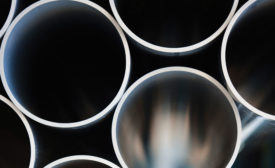Paint and Coating Resins & Polymers
Blending Tradition with Innovation
Coupling Traditional Polymers with Unusual Processing Technology to Create Unique Coating Solutions
Read More
Resource-Efficient Corrosion Protection
a Life Cycle Assessment of a Silicone-Epoxy Hybrid Resin-Based Coating
February 1, 2016
The Artsy Side of Coatings Science
Dow Scientist Leverages Chemistry to Fuel Breakthroughs in Art Conservation
Read More
Keep the info flowing with our eNewsletters!
Get the latest industry updates tailored your way.
JOIN TODAY!Copyright ©2024. All Rights Reserved BNP Media.
Design, CMS, Hosting & Web Development :: ePublishing











